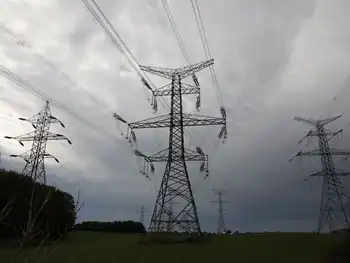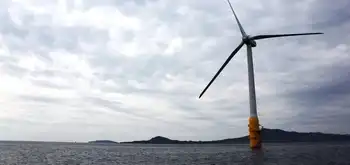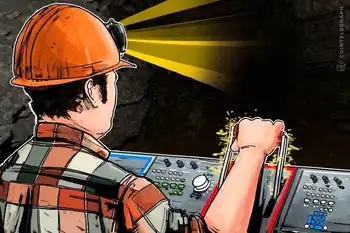Where global warming is boosting power
By Reuters
Substation Relay Protection Training
Our customized live online or in‑person group training can be delivered to your staff at your location.

- Live Online
- 12 hours Instructor-led
- Group Training Available
On a purely physical level, this land of icecaps and volcanoes and home to 300,000 people is undergoing a rapid transformation as its glaciers melt and weather patterns change dramatically.
But global warming is also having a profound effect on Iceland economically - and in many ways the effects have actually been beneficial.
Warmer weather has been a boon to Iceland's hydroelectric industry, which is producing more energy than before as melting glaciers feed its rivers.
Climate change, stoked by human use of fossil fuels, has also focused attention on Iceland's energy innovations and created demand for its ideas and expertise in fields such as geothermal energy and fuel technology.
Scientists from Africa to the Americas are exploring what Icelandic universities and energy researchers are up to. And foreign companies are teaming up with the small island's firms.
Two-thirds of electricity in Iceland is already derived from renewable sources - its plentiful rivers and waterfalls and the geothermal heat that warms 90 percent of Iceland's houses.
Some observers say forward-thinking comes naturally on an island where climate change can already be seen in thawing ice and balmier winters.
"People are already now planning for a future that will be different from the past," said Tomas Johannesson, a geophysicist at the Icelandic Meteorological Office.
"We are in an unusual situation that many of the changes that are happening are maybe more beneficial than for the worse," he added.
The increase in waterflow in the island's rivers, because of melting glaciers, is one example.
"If you compare the hydrological data about how much energy is in the water for the last 60 years, and then the last 20 years, you see that there is an increase," said Thorstein Hilmarsson of the national power company Landsvirkjun.
This extra energy is needed in an economy driven partly by power-intensive industries such as aluminum smelting.
But Icelanders know that climate change is not a simple economic equation.
"If something serious happens to other nations, this can easily have an effect here. So people are not exactly welcoming these changes," Johannesson said.
Carol van Voorst, U.S. ambassador to Iceland, has made the promotion of energy ventures in Iceland part of her mission.
"We're on the ground, we know the players, and we can be helpful in making the links and connections," she said.
"You quickly notice how creatively Iceland is using its natural resources," she said.
Among the initiatives that have caught her attention are a deep-drilling project to harness underground energy, technology to convert carbon dioxide into fuel and hydrogen-powered rental cars, which went into use in Reykjavik last year.
The Iceland Deep Drilling Project, a multi-national venture including Landsvirkjun, will start drilling a hole this year between 4 and 5 km (2.5 and 3 miles) deep to learn about "supercritical hydrous fluid" at temperatures of between 400 and 600 degrees Celsius (750 and 1,100 degrees Fahrenheit).
It might take decades to learn how to harness the energy, but it could radically change the way power is generated.
Iceland is also pushing hard to become the first nation to break free from the constraints of fossil fuel - this year, the first hydrogen-equipped commercial vessel was due to start sailing around Reykjavik.
Iceland hopes to convert its entire transport system to hydrogen by 2050.
The flip side of this innovation, however, is concern.
Last October, Nordic nations, including Iceland, sounded the alarm about a quickening melt of Arctic ice and said the thaw might soon prove irreversible because of global warming.
The U.N. Climate Panel says temperatures are rising more rapidly in the Arctic because darker water and land soak up more heat than reflective ice and snow.
Nonetheless, even with higher temperatures, it could take centuries for Iceland's glaciers to melt, the national energy company says.
The Vatnajokull glacier in southeast Iceland is Europe's largest and is big enough to cover all of Iceland with 50 meters (160 ft) of water.
There are more immediate signs of climate change, though, and these are worrying Iceland's residents.
This winter, Reykjavik experienced double-digit swings in temperature, as the normally sub-zero conditions suddenly turned balmy. The capital was flooded.
"I don't think it's even a question," said Asta Gisladottir, asked whether the freak weather was caused by global warming.
"We're so close to the North Pole," the 36-year-old hotel worker said. "It's just in our backyard."
Gisladottir recalled winters during her childhood in the village of Siglufjordur, on the island's north, as very different. Then there was snow from November to April.
Now, it is mostly rain.
Geophysicist Johannesson, who has studied climate change since the early 1990s, said the evidence was not just anecdotal.
"What we see here is an overall warming from a rather cold 19th century," he said. "As a general rule, this is sufficient for us to have many significant changes in the environment."











